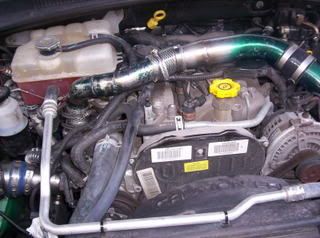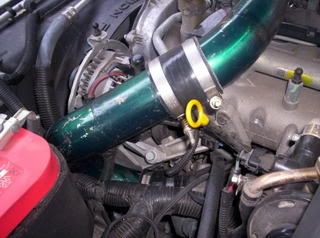Based on Air Input Temperature readings with and without the ORM, if you did the ORM, bypassed the CAC and drove easy, the AIT might not be much higher than normal without the ORM. Your could certainly stop once in a while and feel the hose (carefully) to see if it's getting way too hot or just read AIT with a scan tool while your are driving. The CRD has probably single-handedly driven up the stock price of companies that sell scan tools.

